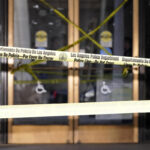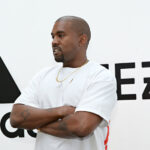
Oct. 25—Even as the war in Ukraine is still in full swing, we must hope that some smart people are thinking about the end game and the long road to peace, a local expert says.
Loramy Gerstbauer, Gustavus Adolphus College international politics and peace studies professor, said Putin declared martial law in the four regions of Ukraine that he has “illegitimately declared to be regions in the Russian Federation after illegitimate referendums in those territories. It’s a whole series of illegitimate acts.”
“It’s obviously illegitimate,” concurred Denis Crnkovic, research professor in Russian at Gustavus. “(Putin) has no jurisdiction in those areas even though he claims he does. Illegal annexation of those four territories he declared … it was soundly called illegal by 143 nations in the United Nations.”
Western munitions are a key to Ukraine’s fight against a much larger military power, Gerstbauer said, and throwing arms into the mix does tend to escalate death and destruction.
Ukraine and Russia separated in 1991; later, in 1994, when the Budapest Memorandum was agreed upon, the U.S. gave Ukraine “an agreement which arranged for the Soviet era nuclear weapons stationed in Ukraine to be returned to Russia, and gave some payments and security assurances to Ukraine in return,” Gerstbauer said.
Crnkovic said aid to Ukraine is divided into two types: military and humanitarian. “Many countries have sent humanitarian aid,” he said. “As for military aid, of course, it should be continued. Ukraine has been invaded by a neighboring country.
“Something people might not realize is we have been providing military training and military intelligence since before this war started,” he said. “As long ago as 2010 and certainly as of 2014 when Russia illegally annexed Crimea.”
As for Russia declaring martial law, Gerstbauer said the military can arrest anyone and hold them for up to 30 days. But conditions were already quite bad for people living in these regions where martial law was declared, including people forced to move or given no option but to move to Russia. The new declaration will restrict freedoms even more, Gerstbauer said.
“Though not a declaration of martial law, restrictions were also announced for territories within Russia,” she said. “Many are viewing this as a way for Putin to control brewing unrest at home and to make sure he can authorize mobilization of resources for the war effort. In other words, it could be a sign of Russian weakness.”
The ultimate question is whether there would be a decisive victory for one side on the battlefield, she said.
“I personally think a more likely scenario is compromise, a negotiated settlement. Usually that means trading some ‘justice’ for ‘peace,’ meaning Zelenskyy’s goal of gaining back all seized Ukrainian territory, including Crimea, may not happen. A peace agreement should aim for a peace — or end to violence — with as much justice as possible,” she said.
Attacks on utilities could mean a very difficult winter for Ukrainians. Attacking civilian infrastructure is nasty business, Gerstbauer said, and some are making claims these are war crimes committed by Russia. However, this is murky territory in the laws of war.
“Ukraine gets over 50 percent of its energy from nuclear power,” Crnkovic said. “The issue now is these drones that have been attacking the infrastructure of other types of power plants they have. This is Putin’s and Russia’s strategy to demoralize the Ukrainian population. I don’t think that will happen. I still see signs of resilience among Ukrainians. And for some citizens, power outages have become the status quo.”
Putin has no respect for human life except his own, another local war expert said.
“Ukrainian civilians have been forcibly taken to Russia, their whereabouts unknown,” said Richard Leitch, Gustavus associate professor of political science. “No part of Ukrainian territory nor any structure within it is off limits for Russian bombing; and no Ukrainian civilian is immune from Russian terror.
“Russian conscripts are attempting to leave the country to save their lives. Like their counterparts in Ukraine, they just want to live a life of peace, but this war will not soon end. The Ukrainian people will not capitulate, and Putin is too narcissistic to withdraw his military forces or remove his hand-picked administrators of annexed Ukrainian regions, and return of that territory to his newest enemy doesn’t seem possible.
“When Russia invaded Ukraine, the brunt of winter had passed, but it will be a winter of deprivation for all in Ukraine, and for many in Europe,” Leitch said.
Crnkovic said the war is nowhere near ending.
“It’s not going to end right now,” he said. “Putin is playing the long-term game and as long as he plays it the Ukrainians and Zelenskyy aren’t interested in ending the war if it means giving up territory, and they’ve been very resilient.”
Crnkovic said people might laugh at this notion, but he contends the only act that would end the war quickly would be if the Putin regime collapses. If there were one single event and if the Russian government would become a just government and a free and open government, he said. “Right now nothing else will end that war.”




